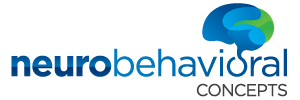What is it?
What to look for
One of the hallmarks of conduct disorder is a seemingly callous disregard for societal norms and the rights, feelings, and personal space of other people. Children and adolescents with CD seem to “get a rise” out of causing harm, in the words of one clinician. For them, aggression, deceit, coercion—behaviors that result in a power differential—are gratifying. Picking fights, trespassing, lying, cheating, stealing, vandalism, and emotionally or physically abusive behavior, including wielding a deadly weapon or forcing sex, are all signs that an older child may have conduct disorder. Signs of the disorder in younger children may be harder to discern from more normal acting out, but are similarly coercive: relentless bullying, lying for the sake of lying, stealing items of no apparent worth.
Since all kids and adolescents act out from time to time, experts caution that a persistent pattern of this sort of behavior must be in evidence before CD is considered. Professionals also attempt to determine if the behavior is a negative adaptation to a troubled environment, a “learned” behavior, or if the gratification that comes from aggression seems to originate from within.
Causes
The causes of conduct disorder are unknown, though it is thought to arise from a combination ofgenetic and other biological factors, including temperament, and an interaction with environmental factors. There is also growing evidence of brain abnormalities in people with CD. A troubled, abusive, or unsupportive home or social environment can result in a child with a naturally but not distressingly difficult temperament spiraling towards conduct disorder, in an increasingly negative cycle of interactions with parents, authority figures, and peers.
Professional understanding of the underlying factors is complicated by the fact that many children with CD go undiagnosed because their symptoms are considered simply bad behavior rather than a psychiatric disorder. Research based on treatment data suggests 6% of American children may have CD, though the actual prevalence is unknown.
Diagnosis
Treatment
Conduct disorder is difficult to overcome, but it is not hopeless. In situations where an effective support network of parental figures, teachers, and peers can be assembled, the disorder is manageable.
Psychotherapy: Treatment for conduct disorder is complicated by the negative attitudes the disorder instills in your child. As such, psychotherapy and behavioral therapy are often undertaken for long periods of time, and the entire family and support network of your child is brought into the loop. The earlier the condition is diagnosed, the more successful the therapy will be. While your child learns a better way to interact with the world at large, you will learn the best ways to communicate with him.
In younger children, treatment for CD can resemble treatment for ODD—parent management training may be undertaken by a therapist to teach you how to encourage desired behaviors in your child. In adolescents, therapy may target not just the home life but interactions with authority figures at school, and ensuring that peer relations are beneficial, not harmful.
Since conduct disorder is often (but not always) diagnosed along with a number of other conditions that can be treated pharmacologically, your child may also go on medication as part of his therapy.
Other disorders to look out for
Frequently asked questions
Conduct disorder is a psychiatric disorder, not just bad behavior. The gratification that comes from aggression, domination, and deceit seems to originate from within kids with CD, and research using MRI scans indicate that in some situations their brains may actually work differently than other children’s.
Is my child dangerous?
Children with conduct disorder are frequently dangerous to themselves and others. Undiagnosed and untreated, kids with conduct disorder can continue to harm and endanger others with their callous disregard. Fortunately, the earlier your child receives treatment, the better the outlook for the future.
Will my child grow out of it?
Children with untreated conduct disorder have ongoing problems. As an adult your child could struggle with having relationships or even holding a job, and be at dramatically increased risk for involvement with the legal system and substance abuse. Without treatment it is also likely that your child’s conduct disorder will progress into antisocial personality disorder.
Does medicine help?
Children with conduct disorder frequently have other psychiatric disorders such as ADHD that are commonly treated with medication. While there isn’t a specific medication for treating conduct disorder, medication prescribed for another condition may reduce his CD symptoms.



